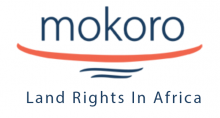Resource information
Land is again the subject of debate in Mozambique, 5 years after the passage of a land law which won praise for protecting peasant rights while creating space for outside investment. The new debate is about whether land, or at least land ’titles’, should be able to be sold and mortgaged, are whether more emphasis should be put on improving conditions for would-be investors rather than delimiting and protecting peasant land and capacitating communities to deal with investors. Argues that the debate on land is actually a proxy for a debate about rural development. There are sharp divisions within government, the World Bank, donor agencies, and Mozambican civil society. The land debate is also linked to one over rural credit and support for farmers. Looks at what land is available for investors and at the difference between free or vacant land and underused land. The law gives communities the right to delimit and register their land. Delimitation gives communities power, but the process can cause problems, raising expectations and sometimes disinterring old disputes. Although the process is expensive and time-consuming, it may be the only way to protect peasant rights. Cites proposals already made by Mozambicans and foreigners working on the land issue on: continuing the work of the land commission; improving consultation; continuing delimitation; creating a kind of community organiser, facilitator or barefoot planner; enforcement of regulations and agreements; pilot partnerships; credit guarantee funds; increased transparency. Concludes by stressing the central role of Mozambican NGOs, but raises a number of questions about their increased role as service agencies and their ability to do what may be asked of them.


